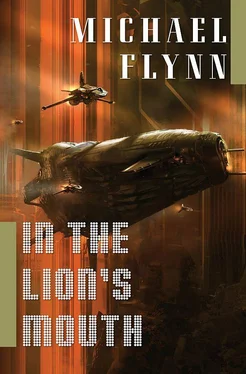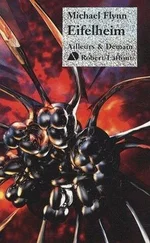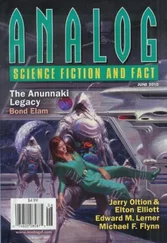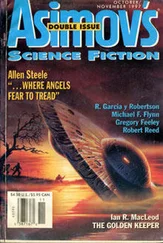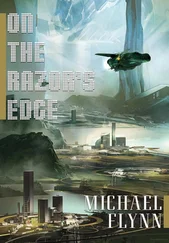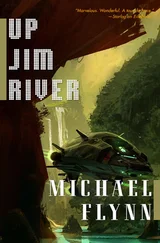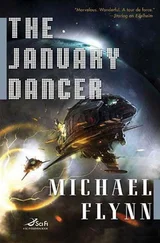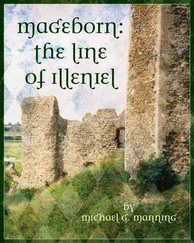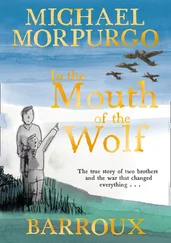Dawshoo understood his meaning. The motions would be gone through, but the military would restrain themselves. He rose from behind the governor’s desk and, as he circled it to the right, the swoswai edged around to the left. Seated once more in his proper place, Mashdasan seemed to grow more confident. “I will have my men show you out,” he said, reaching for the summoner.
But Dawshoo demurred. “Don’t trouble yourself. I will leave the way I came.” As he faded toward the door, Mashdasan bent over his reports. “Oh, one thing,” the governor added just before the Shadow touched the door plate. He looked up from the desk. “We only planted three.”
* * *
In the afternoon, the group meetings produced success trees and idea boxes. The trees detailed the sequences of contingent events required to ensure a successful operation. The boxes listed on their stubs the essential features an operation must possess—facilities, assets, materials, time lines, and so forth—and along the rows multiple alternatives for each. Dawshoo turned copies of these over to Oschous and Gidula, who would generate random combinations of alternatives as a way of seeding their own creativity.
“Nothing too pedestrian,” he warned them. “A coup is as much an art form as it is a decapitation. Future generations should admire the craft of our blow, and not merely the cause in which it was struck. Besides, anything too ordinary has already been anticipated. Our erstwhile colleagues will have analyzed the failure modes of their defenses. We must identify some unexpected weakness; some blind spot in their foresight.”
When Oschous Dee Karnatika smiled he resembled a fox. He belonged to that race of men whose faces bore a fine, red, downy fur. The magicians of the old Commonwealth had in their pride toyed with the genes of men; and what they had learned before consequence brought them low was that genes were like a dangling mobile. If you jiggled one of them, others jiggled in response, and often in surprising and undesired ways. Dee Karnatika’s ancestors had been engineered for enhanced cleverness and—on the broad average—successfully so. The price had been paid in face fuzz and protruding lower facial process, so that their fellow men recognized them immediately as the clever sort and responded with increased wariness. So does yin excite its yang.
“Gidula and me, we’ll work the problem separately. Then score each of our plans against the goals and objectives and hybridize what we can. We may go several rounds before we come up with something invulnerable. Do you want a plan before we leave the planet?”
“A fisherman impatient catches naught. Hasten slowly, my friend.”
The Fox struck his breast in salute and left the meeting room, leaving Dawshoo with Gidula. A few moments passed in silence. Then the old man said, “Oschous is a clever man. Far more clever than I. He will devise a good plan.”
“So will you. His will be clever; yours will be wise. The child born of their mating will be the superior to both.” First Speaker paused and looked away. “How clever is he, do you think?”
Gidula hesitated and cocked his head. “Is there a problem?”
“Mashdasan told me that MILINTEL planted but three bugs.”
“Ah.” The old man tugged on his beard. “And we found four.”
“Yes. Who planted the fourth bug?”
“Mashdasan. He lied. He wanted to upset you.”
“If so, a point for him. But it seems more clever than his wont. What if he spoke truly?”
“I could visit him tonight and learn.”
Dawshoo shook his head. “No. We have a truce, an understanding. If we break it, the garrison will take revenge. They have not our talent for retail mayhem, but for wholesale they do well enough.”
“You think perhaps an agent-in-place is here on Henrietta and we were misfortunate enough to meet here in his lap?”
“That, or a colleague of ours still embraces the Names.”
“Twenty years is a long time for undercover work. Pretend too long and … can it remain pretense?” Gidula thought about the matter and walked to the window, where he looked out over the harbor. Gulls shrieked over the naval craft and pleasure boats. “If a Deadly One had planted the fourth bug,” he said finally, “would Little Jacques have found it so easily?”
“You think we were meant to find it.”
Gidula nodded and Dawshoo scowled. “We should have swept the room yesterday, then we could have discussed this at dinner last night.”
“Perhaps the intention was to sow uncertainty in our hearts.”
“Ha! That’s like hauling dirt to a Terran ghetto. Uncertainty is nothing we have in short supply. Yes, Little Jacques, what is it?”
The Shadow had appeared by the meeting room door. He was a small man and could fit into spaces a normal man might not. His ancestors had once been called pygmies, but there was something in him of the dwarf, as well. And no natural pygmies had been so pale.
“Message for you, Beak,” he said, extending a packet.
Dawshoo detested the nickname, but he tolerated its use by his companions lest he appear haughty. He glanced at the seal and saw it came from SkyPort Rietta. He broke it open and removed the flimsy, read it, and smiled.
“It’s Olafsdottr,” he told Gidula. “She’s brought us a present.”
The old Shadow pursed his lips. “So. The long shot pays off.”
“Maybe. I need to inspect the goods first.”
Little Jacques smiled. “I love opening presents.”
Cengjam Gaafe: The Third Interrogatory
Méarana plucks a diminished seventh on her harp. “So,” she says. “The extra bug was ‘the discord note.’”
“How nice to hear of the enemy,” Graceful Bintsaif adds, “picking themselves apart.”
Bridget ban says nothing, but sips her coffee and watches the Shadow through lowered lids. Méarana plays a goltraí, something sad but hopeful. She uses her sky-voice, so that the keening appears to emanate from a far corner of the sitting room. Olafsdottr glances briefly in that direction before realizing the trick, then listens for a time in silence.
Bintsaif, finding no reaction to her jibe, shrugs and settles back and the Shadow, as if sensing that motion, turns abruptly toward her and jabs a finger in her direction. The junior Hound flinches, but only a little. Olafsdottr grins. “Do not be too happy, turtle egg,” she says, “oover the misfortune of oothers.” Then switching to Manjrin, she adds, “Fates deplore happiness. Seek always balance.”
“Is that why Dawshoo took such a desperate gamble?” Bridget ban asks. “By courting disaster, did he hope the Fates would award him success?”
“Never good, gamble with Fates. They load dice. You have never been married, have you? Any of you.”
A moment of silence ensues. No one speaks.
“Ooh, it is a chancy thing at best, this marriage thing; and one ill-advised for those in our profession. It is a deep union, I am told; deeper than pair-bond contracts, for it is a mingling of the hearts and not only a meeting of the minds. It has a sort of life of its own; and so may have a sort of death. It is a fragile thing—a spark in a blustery wind—and wants constant vigil to keep alight. Yet, even with the best of wills, even with a common intent, it does not always survive. It is always sad,” she says, lifting once more her coffee to her lips, “to see what began in hope to end in strife.”
When she sets it down again, her face is more sober than at any time since entering Clanthompson Hall, not excepting the moment when she had found two guns and a knife aimed at her heart. “Our confraternity is closely knit. More so, I think, than your Kennel. We trace our ‘ancestry’ through those who taught us. The students of a common master count themselves as brothers. We know our teacher’s teacher, and his before. We train and practice together in the Abattoir, deep within the Lion’s Mouth. In this struggle that now consumes us, I have killed my brother. So, Graceful Bintsaif, do not rejoice that he chose one path and I another. For I do not.”
Читать дальше
